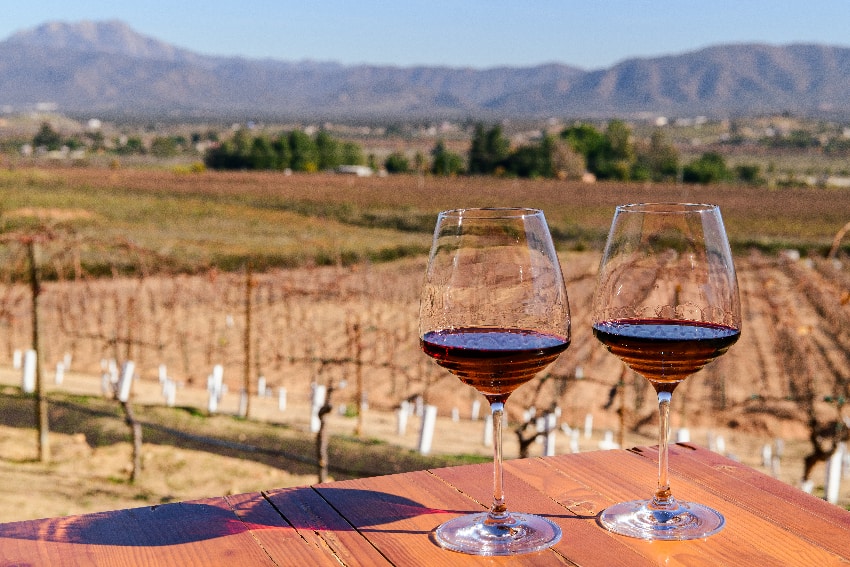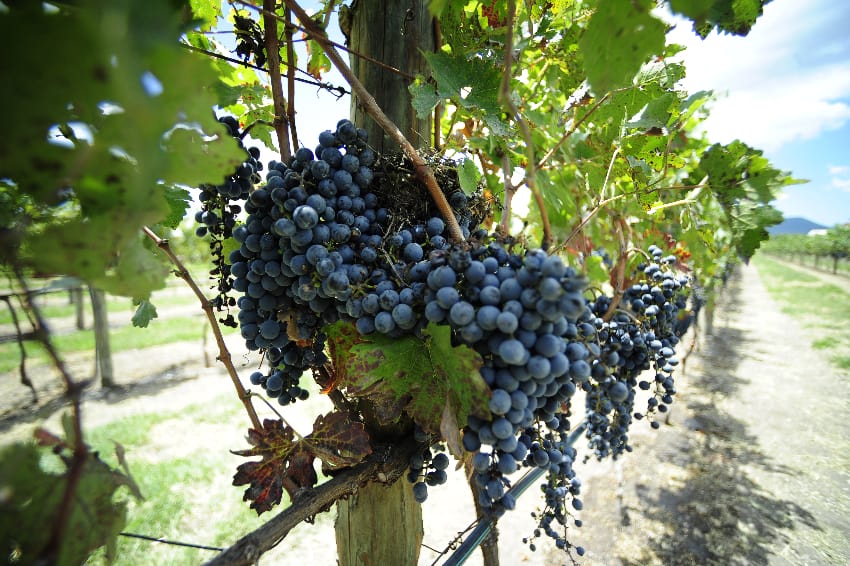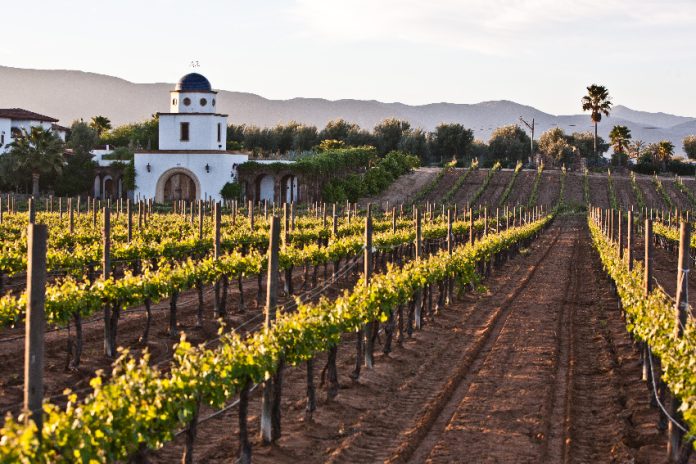A group of winemakers, chefs and concerned members of the Valle de Guadalupe community have issued a dire warning: If urbanization in the burgeoning region is not halted soon, it will cease to exist as “wine country” by 2037.
Members of newly formed Rescue the Valley (Rescatemos el Valle) took their case to the media this week, putting out a clarion call to federal, state and municipal governments to save the essence of Valle de Guadalupe — which is a sub-region of the larger Baja California winemaking area, sometimes referred to as “the Napa Valley of Mexico.”
Located only 113 kilometers southeast of the San Diego–Tijuana border crossing, Valle de Guadalupe and its more than 200 wineries have become an increasingly popular tourist destination for tasting, boutique hotels, Baja-Med cuisine, food and wine festivals and large-scale concerts. Wine-related tourism brings in 3.6 billion pesos (US $180 million) of annual revenue to Baja California.
As the area has grown in popularity, there has been an onslaught of real estate development and urbanization with few laws and regulations enforced to moderate the impact, according to members of Rescatemos El Valle.

“The valley is at risk,” said winery owner Fernando Pérez Castro, president of the State Council of Wine Producers of Baja California at a virtual press conference held on Tuesday. The press conference included a panel of winegrowers, officials from regional wine associations and commerce groups, a professor who specializes in ecosystems management, civic leaders and the well-known chef Jair Téllez, among others.
In becoming urbanized, the panelists said, El Valle is destroying its viability as an agricultural and wine region, which is why it became one of the most iconic destinations in Mexico in the first place.
They reported that at least 1,000 hectares (2,500 acres) of land that was either fallow or being used for viticulture has been gobbled up for private homes, businesses, and temporary and permanent concert venues. Between 2014 and 2019, 18% of agricultural land was lost in Valle de Guadalupe, which is located in the municipality of Ensenada, about 20 kilometers north of that city.
According to figures from the Institute of Metropolitan Research and Planning of Ensenada, the 5,445 cultivable hectares that existed in 2017 will be reduced to approximately 2,000 hectares in five years, The same forecast estimated that by 2037 the only remaining farmlands will be the ones upon which wine grapes are already planted.

“In general terms, what is identified as the main cause of the problem in Valle de Guadalupe is uncontrolled growth … which brings direct consequences related to water, soil, agriculture, the community and the landscape,” explained the panelists.
In addition, they said the 2010 Urban-Tourism Development Sector Program of Los Valles Vitivinícolas, which had a stated purpose of “preserving agricultural land by 95% for the next 30 years,” has been an absolute failure. An updated version in 2018 reduced the conservation goal by 424% and the area covered under the program was 81% smaller.
One project for a music venue, which wanted to clear 16 hectares of vegetation in an agricultural/conservation area, was scrapped by the Federal Attorney for Environmental Protection, but the 9,000-capacity Valle de Guadalupe Arena is scheduled to open by the end of this year, and the 7,000-capacity Valle Amphitheater is already open.
Moreover, five other music clubs have opened in the area, which the group members said “would be unheard of in any other wine region in the world, from Mendoza [Argentina] to Bordeaux [France].”
Valle de Guadalupe also hosts numerous festivals that attract international visitors, such as the fourth annual Valle Food & Wine Festival, returning on October 22-23 after a three-year hiatus. The event will feature 25 chefs and 20 winemakers from the United States and Mexico, including big-name chefs such as Rick Bayless and Nancy Silverton.
Members of Rescatemos El Valle called for the creation of federal agencies to protect the agricultural and biocultural heritage of the country and emphasized they seek collaboration with the authorities, not confrontation. In addition to wine regions, they suggested these government entities could protect and regulate areas where coffee, chocolate, vanilla, fruit, agave and other important and endemic crops are cultivated.
With reports from El Pais, Reforma, Agencia Informativa de Mexico and Zeta Tijuana
